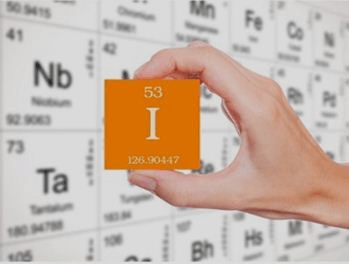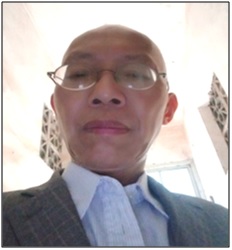IODINE INTAKE AND CANCER
Keywords:
Iodine excess goiter, IIH and IIT, oncogenic thyroid hormone receptor mutants, the pattern of papillary carcinoma (PTC)Abstract
Objectives: Iodine is a trace element that is essential for the synthesis of thyroid hormone. Both chronic iodine deficiency or iodine excess have been associated with hypertrophy and hyperplasia of follicular cells in thyroid gland and the influence of thyroid hormone (T3, T4) and thyrotropin (TSH) secretion. Increase rates of the thyroid cancer are increasing after radiation exposure to 131I in children or aldolescents.
Methodology: In respective published reports in literature and in combination of our previous study, dietary iodine excess goiter, iodine induced hyperthyroidism (IIH) and IIT, Iodine intake and the prevalence of papillary carcinoma (PTC), as well as the case-control and cohort studies of thyroid cancer and intake of seafood and milk products, were systematically reviewed. Relative factors that should be considered when studying the effect of dietary iodine in the development of thyroid cancer include screening programs, pathological criteria, diagnostic techniques, radioactive iodine, and standard of medical care in the studied population.
Results and conclusion: In current surveys, papillary thyroid carcinoma forms the largest group of thyroid malignancies, after iodine intake excess or iodine prophylaxis where an increase in the papillary: follicular carcinoma ratio was uncovered. Also, there is clear temporal relationship in many countries between introduction of iodine intake excess especially as to radioactive iodine and an increase in incidence of PTC. Iodine goiter, IIH and IIT were also noted. Autoimmune hashimoto's thyroiditis are linked to dietary iodine. Dietary iodine intake is another care of environmental relevance factor in thyroid diseases and papillary carcinoma. Available evidence of oncogenic thyroid hormone receptor mutants from animal experiments and clinical investigation have been a shift toward the oncogenic function of human thyroid carcinoma, and also its target therapy.

Peer Review History:
Received: 3 April 2021; Revised: 6 May; Accepted: 12 June; Available online: 15 July 2021
Academic Editor: Ahmad Najib , Universitas Muslim Indonesia, Makassar, Indonesia, ahmad.najib@umi.ac.id
, Universitas Muslim Indonesia, Makassar, Indonesia, ahmad.najib@umi.ac.id
Reviewer(s) detail:
Prof. Dr. A. Hakan AKTAŞ , Süleyman Demirel University, Faculty of Science and Art, Department of Chemistry, Isparta-Turkey, hakanaktas@sdu.edu.tr
, Süleyman Demirel University, Faculty of Science and Art, Department of Chemistry, Isparta-Turkey, hakanaktas@sdu.edu.tr
Dr. Vladimir Zaichick , Radionuclide Diagnostics Department, Medical Radiological Research Centre, Obninsk, 249036, Russia. vzaichick@gmail.com
, Radionuclide Diagnostics Department, Medical Radiological Research Centre, Obninsk, 249036, Russia. vzaichick@gmail.com
Dr. U. S. Mahadeva Rao , Universiti Sultan Zainal Abidin, Terengganu Malaysia, raousm@gmail.com
, Universiti Sultan Zainal Abidin, Terengganu Malaysia, raousm@gmail.com
Downloads

Published
How to Cite
Issue
Section

This work is licensed under a Creative Commons Attribution-NonCommercial 4.0 International License.









 .
.